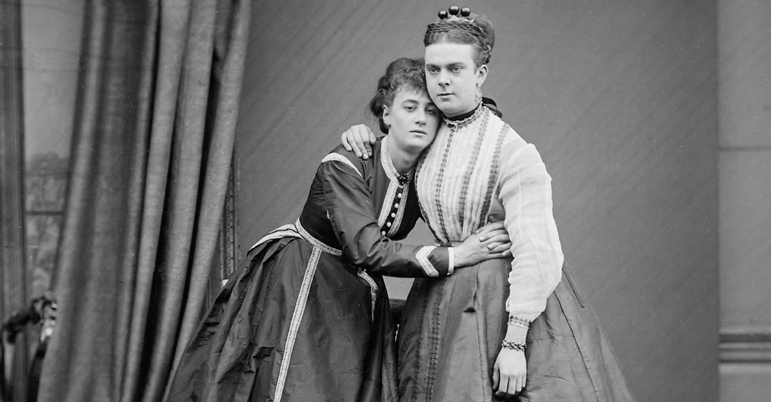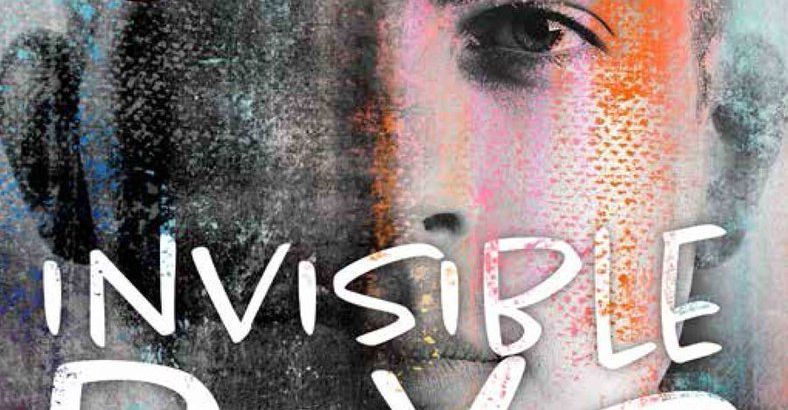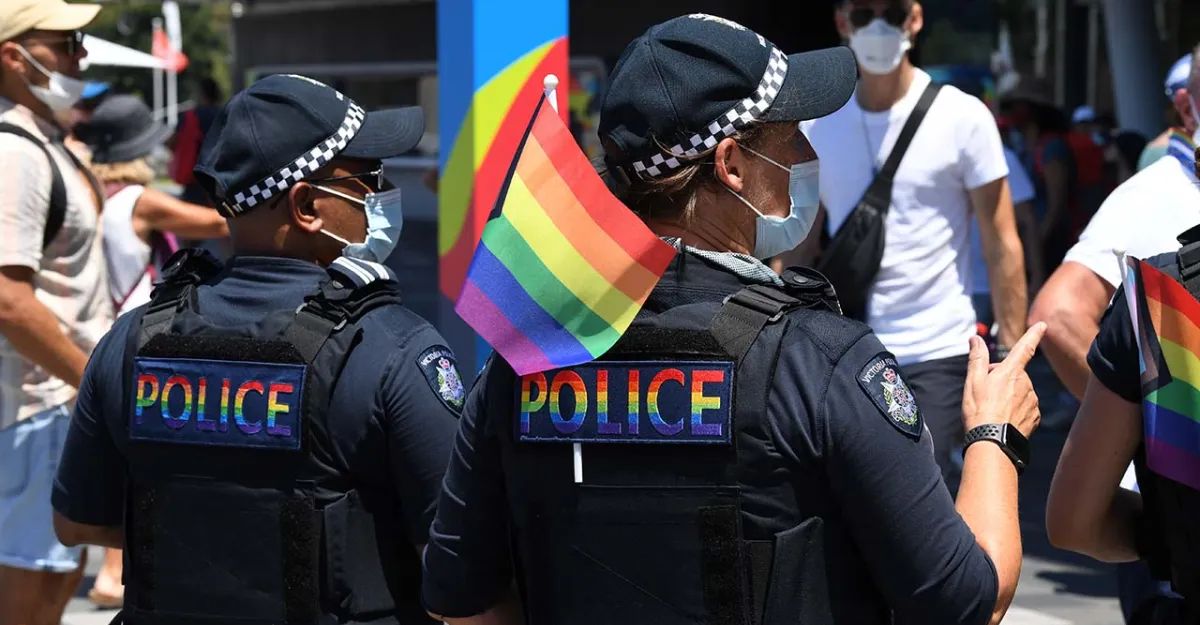Have you heard about lesbians? Women who love women—what a concept! And it’s not just a Seventies throwback. It seems like lesbians are everywhere these days, from Deadloch to DFAT. Yet everywhere you turn, in every social media comment section, you find stalwart self-professed defenders of lesbians, warning that lesbians are under threat of erasure.
Now, I’m something of a lesbian myself, and from my perspective—putting aside for a minute the housing crisis, COVID-19, the cost of living, psychiatrist fees, Sarina Russo, fentanyl in the pingers, climate change, and global fascism—there’s never been a better time to be a lesbian. Let me rephrase that: it’s never been easier to meet and connect with other queer women (hot tip: girls love it when you help them file a complaint against their landlord for breach of the minimum rental standards). So what the hell is going on here? Who’s erasing whom?
It seems lesbian identity has become something of a cause célèbre for the global right, providing pseudo-progressive cover to anti-trans hate. Lesbians, the logic runs, are women who are exclusively sexually attracted to other women, and therefore uniquely clear-sighted about what the most important and defining part of any woman is: the pussy. Just like other reactionary campaigns, this framing tends to rely on the creation of an imagined tradition, projecting contemporary conservative ideas about sex and gender into an extensive past. This also provides convenient cover for the fact that most lesbians aren’t actually that cooked—we can be dismissed as a recent aberration, fraudulent claimants to the lesbian inheritance.
At some point, however, you do need to scrape up some actual lesbians to front the media. Enter the Lesbian Action Group, a small coterie of Australian lesbians who apparently can’t get a date, but can get a sympathetic interview in a major outlet. Their pitch: Make Lesbianism Great Again!
The Lesbian Action Group (hereafter LAG) claim that they represent the vibrant lesbian community of the 1970s through to 2003, when a legal challenge from ‘the transgender community’ ruined everything. Specifically, the legal challenge overturned an earlier exemption to the Sex Discrimination Act, and prevented organisers of the Lesbian Festival from restricting attendance to cisgender women. Since then, they claim, lesbians have been forced underground, into a situation akin to the Fifties and Sixties, before the rise of the Gay Liberation Movement. Lesbians are isolated, without community, cut off from reaching out to the young women so desperately in need of guidance, withering like spring wheat hit by a late frost. And so, LAG have decided to relitigate the 2003 decision, and file an application with the Human Rights Commission on behalf of ‘the Lesbian community as a whole’, requesting an exemption to the Sex Discrimination Act to hold a festival for ‘Lesbian Born Females’ at the Victorian Pride Centre in St Kilda, Melbourne, excluding ‘Heterosexual, Bisexual and Gay males, Heterosexual and Bisexual females, Transgender people and Queer plus people.’
It’s worth noting at this point that they probably won’t get the exemption. For starters, the application is riddled with basic legal errors and statements like ‘we can’t find the document, but’. It’s also unclear if they’ve even approached the Victorian Pride Centre, which you’d think would be the first step (the Centre has since confirmed they will not host the event). It’s all pretty sloppy. And yet, LAG managed to score positive media coverage about a rambling submission to a statutory authority that reads more like a story from Grandpa Simpson. That’s quite a feat—and revealing of what LAG’s priorities are. However, I suspect they’re not only aware they’re likely to get knocked back, they’re counting on it. This isn’t a plan to hold an event, it’s a plan to get attention, and a platform for their historical claims about lesbian identity.
In LAG’S narrative, the entirely cisgender/’female born’ lesbian community was living in a kind of Adamless Garden of Eden until 2003, unaware of any controversy around the exclusion of trans lesbians. This is an extremely strange claim if you know anything about queer history. Feminist scholar Sara Ahmed has observed that anti-trans feminists rely on a bit of rhetorical sleight of hand: endlessly concerned about the erasure of feminism, and constantly given a platform to speak on it, they rely on widespread ignorance of feminist theory and history in order to be taken seriously, perpetuating the very erasure they claim to mourn. Lesbian and feminist history are, of course, intimately intertwined.
So let’s take a quick jaunt into the archives of Australian lesbian publication Lesbians on the Loose (LOTL). In 1993, LOTL reported that most of the lesbian members of the Gay and Lesbian Rights Lobby Board resigned following the expulsion of transgender and intersex activist Norrie-May Welby. Shortly after this, Board co-convenor Deborah Taylor resigned, having lost the confidence of the community, apparently due to her transphobic views. The following year, the National Lesbian Conference in Brisbane expelled trans lesbians, and the Lesbian Space Project announced their intention to do the same.
In response, LOTL received a large volume of letters from readers, many of whom were strongly supportive of transgender lesbians:
I am a lesbian and have a lesbian trany [sic] girlfriend. I thought lesbians were about fighting discrimination, not provoking it. I mean isn’t it bad enough knowing you’re a woman, knowing you’re a lesbian and having to live with a penis between your legs until you’re 21, legally old enough to discard the offensive object. Then when you finally feel human, finally feel like the woman you always knew you were, you’re rejected by the people you thought were your own kind. Now that sucks!
‘Pissed Off’, Annandale, NSW
(The word ‘trany’ or ‘tranny’ is now considered offensive by most transgender people, but does not appear to be seen as such by these women. This is in line with the rapidly shifting nature of linguistic norms in LGBTQ+ communities.)
How many more jobs and careers will be lost, how many more rapes and bashings will occur, how much more of the constant judgement on appearances and lack of equal rights must transgender women suffer (and indeed, women generally) before some action is taken to stop their constant degradation and isolation? While I recognise that lesbians are an oppressed minority, I can also see that transgender lesbians are a minority within a minority, and that they should no longer be silenced.
Jandy Rainbow, Melbourne, VIC
I am a lesbian trany [sic] and am relieved to find that there are others out there, that I am not alone. We are not men. We are women who just happen to like other women, so please don’t condemn us because we had an unusual start in life. Why the oppression, why the violence? We are a threat to no one. All we ask is to be accepted.
Nicole, Cremorne, NSW
To those who believe that ‘real lesbians are born women and bleed’ let me raise the following points.
Birth defects sometimes leave a woman without a vagina. Does this mean she is not a woman? There are also a great many women who, for various reasons, do not menstruate. Are they not still women? Women born without wombs or who have had hysterectomies, are they still not women?
Name & address withheld, Melbourne, VIC
This is one of a number of accounts globally suggesting trans lesbians were generally included in lesbian spaces and communities, until a reactionary backlash beginning in the late 1980s and early 1990s sought to expel them. However, I don’t mean to suggest that the ‘authentic’ lesbian history is one of harmony and trans-cis solidarity. Rather, transphobia was a source of intense conflict between lesbians, one of many at this time. Battles over transphobia, kink, pornography, bisexuality and sex work so dominated lesbian life in the Eighties and Nineties that the period has been dubbed the ‘lesbian sex wars’.
It’s inconceivable that the Lesbian Action Group might be unaware of the lesbian sex wars, because they’re still fighting them—they’re one of the holdouts from that anti-trans backlash, maintaining a position that increasingly isolates them from other lesbians and feminists.
A clear illustration of this can be seen in the shifting alignment of high-profile radical feminist legal scholar Dr Catharine MacKinnon. MacKinnon’s work is focused on sexual assault and harassment, the sex industry, and the legal personhood of women. Formerly associated with anti-trans feminists like Melbourne’s Sheila Jeffreys due to their shared opposition to liberalisation of restrictions on the sex industry, in 2021 MacKinnon publicly stated her support of trans people and distanced herself from so-called ‘gender critical’ feminists.
In fairness, while MacKinnon holds many views I find odious, I never got the sense that she was fully on board with Jeffreys on this one. Few serious feminist scholars are, as it’s hard to sustain that kind of naive essentialism as an actual expert in the field. Likewise, scholars of queer history tend to recognise that lesbian identity is not static.
In part, this is due to the rapid pace of language change around sex and sexual identity. A ‘gay girl’ in a 1960s Australian newspaper probably isn’t a lesbian, but rather a vivacious, joyful personality. Go back to the 1930s, however, and it’s almost certainly a euphemism for a sex worker. (It is from this usage that the modern sense of ‘gay’ derives, via male sex workers or ‘gay men’).
The attempt by LAG to define themselves as the true inheritors of lesbian history rests on a linguistic misconception, a backwards projection of an anachronistically narrow definition of lesbianism. Historically, the term ‘lesbian’ has often incorporated people who would now describe themselves as bisexual, nonbinary, queer, or transgender men. The classic lesbian roman-a-clef Stone Butch Blues, by Leslie Feinberg, features a butch lesbian protagonist who passes for, and at times feels like, a man. Feinberg hirself would come to identify as both transgender and a lesbian by the end of hir life (although hir last word on the matter was ‘Remember me as a revolutionary communist’). Lesbian identity has often been a rejection of ‘female’ identity, defined as it often is in relation to men. Lesbian theorist Monique Wittig famously concluded that ‘lesbians are not women’.
Much of this, I learned from 80-something fem icon and Lesbian Herstory Archive cofounder Joan Nestle, who is greatly respected by many younger women for her efforts to build intergenerational bridges connecting us to this broad, anarchic side of lesbian history. (Joan and her partner Diane Otto, a professorial fellow at Melbourne Law School, have made a formal submission opposing LAG’s application.) And, actually, before I knew this history—and met a few trans lesbians—I didn’t really want to be a lesbian, or call myself a lesbian. I just couldn’t see much to relate to, anything that felt welcoming or inclusive or sexy. And I felt like I’d forever be tainted by my ex-boyfriends, watched for signs of resurgent bisexuality. I came to see myself as a lesbian only when I came to see lesbianism as something bigger and weirder than the exclusion of ‘Heterosexual, Bisexual and Gay males, Heterosexual and Bisexual females, Transgender people and Queer plus people.’
If LAG gatherings are moribund, it’s for one reason only: no one wants to hear that shit. And if they feel compelled to hold them in secret, it’s not because of harsh legal penalties for transphobia. Just last year, anti-trans activist Kellie-Jay Keen, ostensibly a feminist, spoke on the steps of the Parliament of Victoria, protected by police, supported by more Nazis than lesbians. The law was no threat to her. What LAG are afraid of is what happened next. For the rest of her speaking tour of Australia and New Zealand, in every city, Keen was shut down and run out of town by counter-protestors from queer, feminist, immigrant, Indigenous, and generally anti-fascist communities—including thousands of lesbians.
It’s not my intention to exonerate cis lesbians like myself from the charge of transphobia—what’s the point of that, anyway? Who’s it for? I think we’re pretty much like anyone else—we learn and grow, if we don’t isolate ourselves. But I think mostly we don’t want to isolate ourselves, because we know what the stakes are. For any queer person, cis or trans or a secret third thing, being transphobic is more than cringe—it’s suicidal.
The Nazis sieg heiling on the steps of Parliament want all of us dead. Their banner read DESTROY PEDO FREAKS, and there was no asterisk saying ‘dykes not included’. It’s either L with the GBTQ and the plus too, or it’s obliteration, total erasure. We know our history, and that’s why we’re still here. We know who our enemy is.
Image: Fanny and Stella, photographed in Chelmsford by Fred Spalding, c.1870 Essex Record Office reference D/F 269/1/3712.






